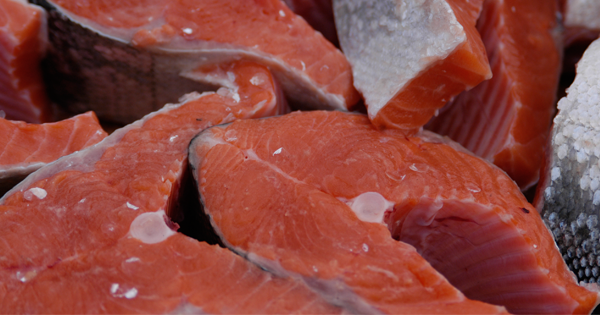Advertisement
You hear it all the time: salmon is your go-to source for omega-3 fatty acids. And that’s true, it is—but only some kinds of salmon. The rich, healthy, omega-3 packed fish that we talk about isn’t just any salmon—it’s wild salmon.
Why does it matter that it’s wild salmon and not farmed salmon? Well, there are so many reasons that it legitimately deserves a list.
- Farmed salmon is dyed. Salmon flesh in the wild is a naturally lovely pink, since its diet consists mostly of shrimp and krill. Farmed salmon, however, feeds on cheaper foods, like food pellets made of a mix of fish and soy. This means farmed salmon’s fish is more beige-y than pink, until farmers put pink dye in their pellets. This means that pink color is totally manufactured.
- Farmed salmon has more omega-6’s. Both wild and farmed salmon have tons of omega-3’s. In fact, farmed salmon has more. But the soy contained in farmed salmon’s feed means that there are way more omega-6’s, up to 1900 mg, in comparison to wild salmon’s 114 mg. That’s way more of the bad stuff than you can afford.
- Farmed salmon has lots of pests—and lots of pesticides. Farmed salmon has been found to contain tapeworms and lice, and as a result, farmers use tons of pesticides to get rid of them. Unfortunately, these pesticides are the same stuff used to get rid of pine beetles on trees.
- Farmed salmon doesn’t have the good stuff. Vitamin D, one of the most important nutrients you can find in wild salmon, is lacking in farmed salmon. There’s only about one-fourth as much in the farmed fish as in the wild ones.
So if you reach for salmon, make sure you ask whomever you’re buying from if it’s wild, especially if you’re ordering from a restaurant! Salmon can be a breat source of nutrients, as long as you eat it right!
Will you ever buy farmed salmon again?
Photo Copyright © 2006 andreagp/Flickr




